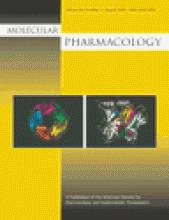Abstract
Cyclooxygenase 2 (COX-2) inhibitors, such as celecoxib (Cel), nimesulfide (NM), and NS-398 [NS; N-[2-(cyclohexyloxy)-4-nitrophenyl]methanesulfonamide] and other nonsteroidal anti-inflammatory drugs inhibit colon cancer growth and angiogenesis; however, the mechanism of this response is not well defined. Treatment of SW-480 colon cancer cells with Cel, NS, or NM decreased vascular endothelial growth factor (VEGF) mRNA and immunoreactive protein expression. This was also accompanied by decreased transactivation in cells transfected with constructs containing VEGF gene promoter inserts. Deletion analysis of the VEGF promoter indicated that decreased VEGF expression by COX-2 inhibitors was associated with the proximal -131 to -47 GC-rich region of the VEGF promoter that binds Sp proteins. Treatment of SW-480 cells with Cel, NM, and NS also decreased Sp1 and Sp4 protein expression but not that of Sp2 or Sp3. Similar results were observed in RKO, HT-29, and DLD colon cancer cells demonstrating comparable responses in COX-2-expressing and -nonexpressing colon cancer cell lines. COX-2 inhibitors do not affect Sp1 or Sp4 mRNA levels in SW-480 cells; however, decreased expression of both proteins was accompanied by increased protein ubiquitination and inhibited by the proteasome inhibitor gliotoxin. These results suggest that the antiangiogenic activity of COX-2 inhibitors in colon cancer cells is linked to activation of proteasome-dependent degradation of Sp1 and Sp4 proteins.
- Received February 8, 2005.
- Accepted May 9, 2005.
- The American Society for Pharmacology and Experimental Therapeutics
MolPharm articles become freely available 12 months after publication, and remain freely available for 5 years.Non-open access articles that fall outside this five year window are available only to institutional subscribers and current ASPET members, or through the article purchase feature at the bottom of the page.
|






